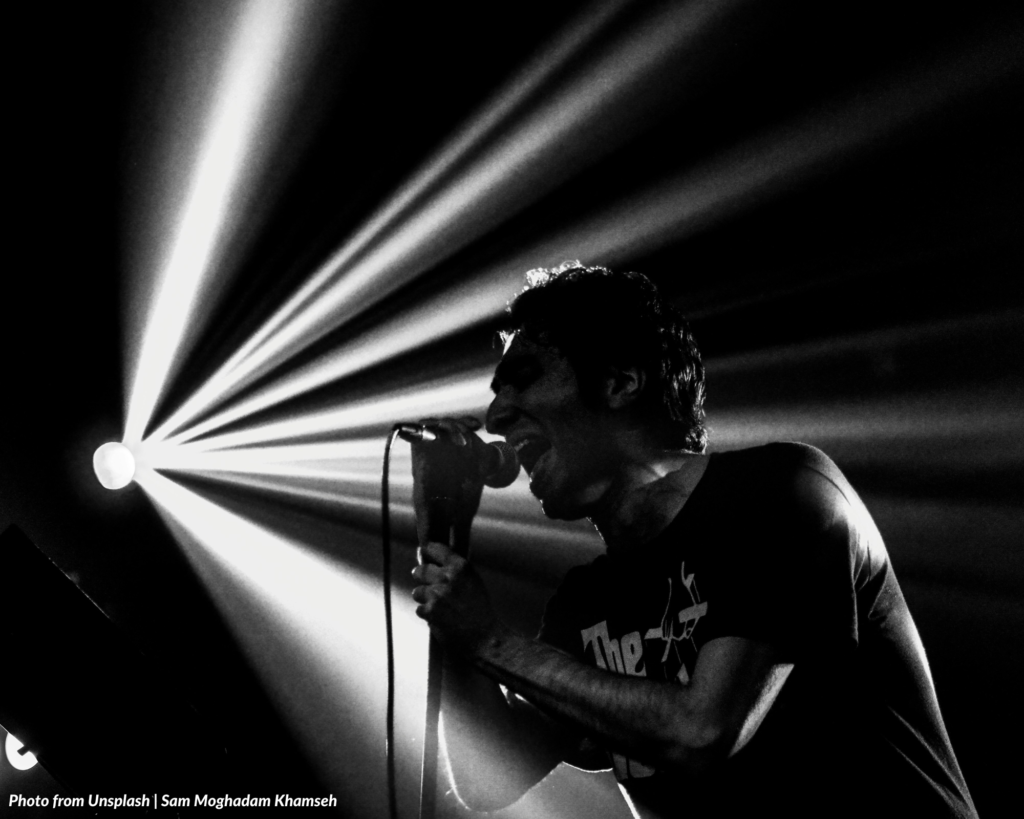
Photo from Unsplash | Sam Moghadam Khamseh
The following post does not create a lawyer-client relationship between Alburo Alburo and Associates Law Offices (or any of its lawyers) and the reader. It is still best for you to engage the services of a lawyer or you may directly contact and consult Alburo Alburo and Associates Law Offices to address your specific legal concerns, if there is any.
Also, the matters contained in the following were written in accordance with the law, rules, and jurisprudence prevailing at the time of writing and posting, and do not include any future developments on the subject matter under discussion.
AT A GLANCE:
Under the Intellectual Property Code, performers enjoy exclusive, moral, and economic rights.
Exclusive rights of performers include the right to authorize the broadcasting, communication, direct or indirect reproduction, distribution of their performances, and the right to make available their performances.
Moral rights of performers include the right to claim and be identified as the performer, and to object to any distortion, mutilation and other modification of his performances.
Economic rights of performers include the right to remuneration and commercial rentals for their performances. (Sections 203 and 204, Intellectual Property Code)
Performers refer to actors, singers, musicians, dancers, and other persons who act, sing, declaim, play in, interpret, or otherwise perform literary and artistic work. (Section 202.1, Intellectual Property Code)
Section 203 of the Intellectual Property Code provides that:
Subject to the provisions of Section 212, performers shall enjoy the following exclusive rights:
203.1. As regards their performances, the right of authorize:
(a) The broadcasting and other communication to the public of their performance; and
(b) The fixation of their unfixed performance.
203.2. The right authorizing the direct or indirect reproduction of their performances fixed in sound recordings or audiovisual works or fixations in any manner or form;
203.3. Subject to the provisions of Section 206, the right authorizing the first public distribution of the original and copies of their performance fixed in the sound recordings or audiovisual works or fixations through sale or rental or other forms of transfer of ownership;
203.4. The right authorizing the commercial rental to the public of the original and copies of their performances fixed in sound recordings or audiovisual works or fixations, even after distribution of them by, or pursuant to the authorization by the performer; and
203.5. The right of authorizing the making available to the public of their performances fixed in sound recordings or audiovisual works or fixations, by wire or wireless mean, in such a way that members of the public may access them from a place and time individually chosen by them.
Section 204 of the Intellectual Property Code provides for the moral rights of performers, to wit:
204.1. Independently of a performer’s economic rights, the performer, shall, as regards his live aural performances or performances fixed in sound recordings or in audiovisual works or fixations, have the right to claim to be identified as the performer of his performances, except where the omission is dictated by the manner of the use of the performance, and to object to any distortion, mutilation or other modification of his performances that would be prejudicial to his reputation. 204.2. The rights granted to a performer in accordance with Subsection 203.1 shall be maintained and exercised fifty (50) years after his death, by his heirs, and in default of heirs, the government, where protection is claimed.
Is there a limitation to the exercise of the rights of performers?
Section 205 of the Intellectual Property Code states that once the performer has authorized the broadcasting or fixation of his performance, the exclusive rights under Section 203 of the same Code is no longer applicable.
The law says:
205.1. Subject to the provisions of Section 206, once the performer has authorized the broadcasting or fixation of his performance, the provisions of Sections 203 shall have no further application.
Further, the law says that the provisions on 184 and 185 regarding the limitations on copyright and fair use of a copyrighted work shall apply to performers whenever necessary. (Section 205.2, Intellectual Property Code)
In the recent case of Filipino Society of Composers, Authors and Publishers, Inc. v. Anrey, Inc. (G.R. No. 233918, August 9, 2022), the Supreme Court ruled that:
“The playing of copyrighted music by means of radio-over-loudspeakers in a commercial setting is not analogous to fair use to exempt the user from copyright infringement.”
Related Article/s: Copyright vs. Patent vs. Trademark
Alburo Alburo and Associates Law Offices specializes in business law and labor law consulting. For inquiries regarding taxation and taxpayer’s remedies, you may reach us at info@alburolaw.com, or dial us at (02)7745-4391/0917-5772207.
All rights reserved.


